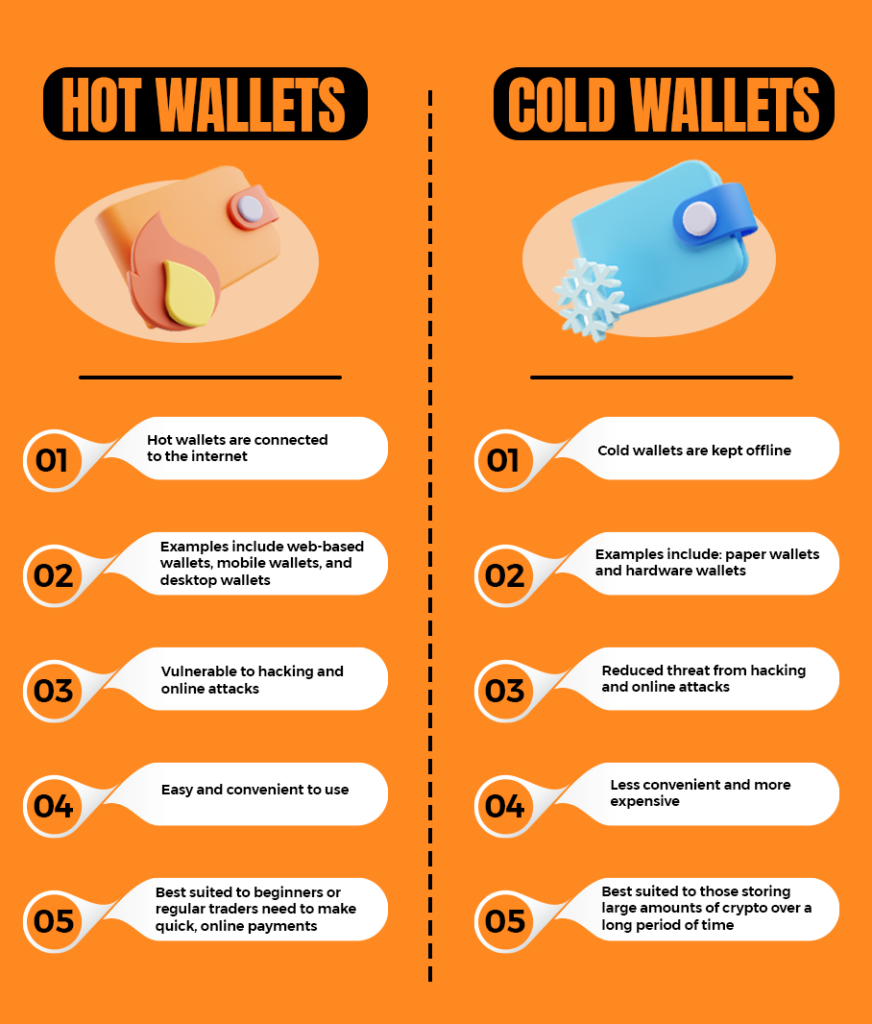Storing Your Bitcoin
Congratulations, you’ve now bought your first Bitcoin.
The next step is understanding storage and the different options at your disposal.
Buying on an exchange is effectively an I.O.U. You don’t own the bitcoin, but rather a claim of bitcoin at a certain buy rate and percentage.
If the exchange goes under, your Bitcoin is not secured.
Check out FTX– the most recent exchange that went bankrupt.
Many advocate for people to move their Bitcoin and cryptocurrency to self-custody when they get a large amount.
What is a Crypto Wallet? (Basic)
A cryptocurrency wallet is simply a program, app or device which holds your private key and allows you to access or move your cryptocurrency.

Best practice
It’s best practice to store any NFTs or cryptocurrency you do not actively use in long-term cold storage.
Please do not write your seed phrase on your computer or share it with anyone.
These are lessons learnt in our earlier module on risks and security.
Which is Right for You?
Only hold a small amount?
You may not need a hardware wallet if you have a minimal amount of cryptocurrency. As soon as your stack becomes significant, we suggest investing in a hardware wallet.
Hold a large amount or a “significant” amount to you?
This can often be judged by asking, “If that crypto was lost would I be able to recover or keep me up at night? If the answer is yes, definitely move it to cold storage.
A rough figure is anything above $2,000 USD to make the $200 hardware wallet purchase make sense.
Example of transferring and storing your Bitcoin

Congratulations
You are now a bitcoiner!
Welcome to the world of crypto and Bitcoin